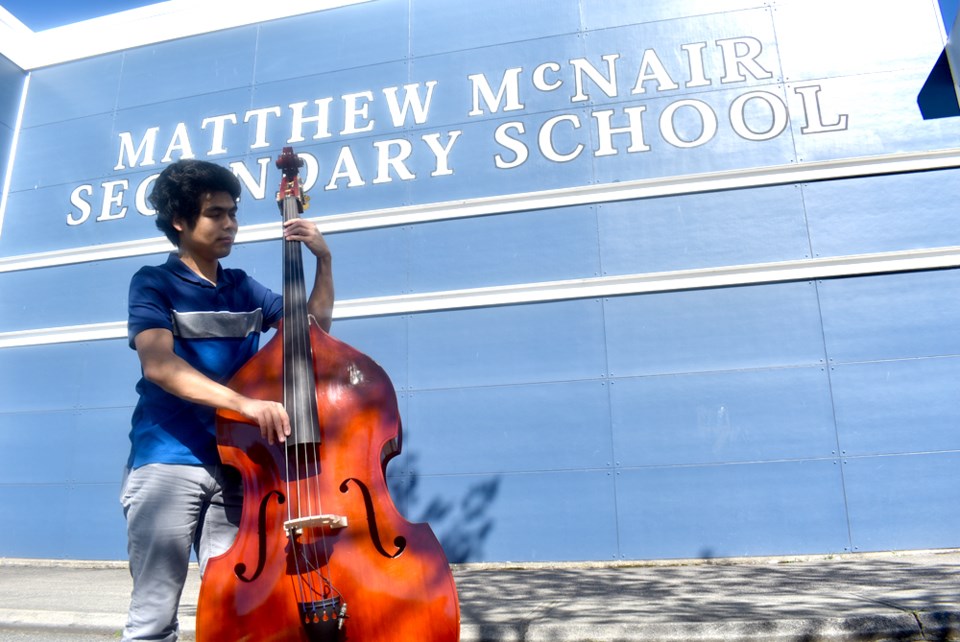After an outcry from parents and academia about cutting back on McNair secondary’s music program, the school will now be offering band to all grade levels.
Three courses were initially being pulled off the course offerings because of low enrolment, but on Tuesday, the school district confirmed one more band class was being added.
McNair grad Francis Naluz said the school’s music program had a “profound impact” on his life and he has gone on to study music at the post-secondary level with the goal of becoming a professional musician and music teacher.
“The last thing I want is for students to lose out on the same incredible experience I had,” Naluz said in an email to Richmond News last week.
McNair parent Alex Yuen said programs that are cut may “never recover.”
“… it effectively cuts off the developmental roots of a music program that takes years to grow and develop,” he said in an email to the Richmond News.
The school had offered seven music classes, but only four had enough students enrolled. However, one more class of band was added this week, so only the choir and strings courses won’t be offered.
Another McNair parent, Andrea Lee, said students that start early in music are more likely to continue on.
“Band at the Grade 8 level allows students to hone basic skills so that they can approach more complex curriculum in future years,” Lee said in an email. “Cutting the Grade 8 Band program is equivalent to cutting the foundation of the music program.”
McNair secondary had 111 students – up from about 100 students taking part this year - wanting to take music this fall.
But Richmond School District spokesperson David Sadler said that “there are no programs being cut.”
Courses are dependent on enrolment and course selection.
“In some instances, enrolment in a course may be too low to justify assigning a block of staffing,” Sadler explained. “Staffing is tighter in some schools this year due to enrolment decline.”
He added, in the past, there’s been “greater flexibility” to run smaller classes when enrolment was higher.
Sadler further clarified that no music programs are being cut at Hugh Boyd, Burnett and Cambie secondary schools and “all interested students have the opportunity to some form of a music program.”
Originally, the school district said it wouldn’t be “feasible” to run the three classes that had low numbers this fall - Grade 10-12 Choir only had seven students sign up, Junior Band had 17 students interested and Strings 9-12 had 17 students expressing interest (originally, the school district reported this number was seven).
While Sadler told the Richmond News that “every single Grade 8 student at McNair will take Music 8,” he later clarified this class is one-third of a semester long.
UBC study links music education with academic success
A recent UBC study, published by the American Psychological Association in June 2019, showed that B.C. students who took band, orchestra or choir scored “significantly better” in math, science and English than those not taking music, explained Peter Gouzouasis, co-author of the study, in an email to the Richmond News.
The study controlled for demographic factors, for example, gender, ethnicity and socioeconomic background.
“It’s a music 'effect', and the scientific proof is solidly documented in our landmark paper,” he added.
The research is part of a new area called “positive youth development,” and Gouzouasis said, adding cancelling instrumental music programs would be “wrong-headed, misguided and uninformed” and will be “detrimental to the academic, socioemotional, motivational, and neurological development of British Columbia adolescents.”
“These are solid scientific facts - not whimsical, artsy arguments built on aesthetic arguments,” he said.



